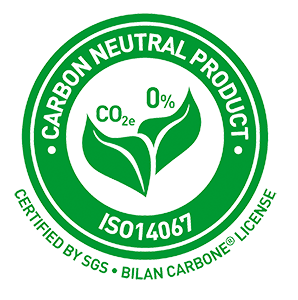The rum producer is committed to a business model that respects the environment and that is aligned with the Sustainable Development Goals.
Ron Barceló is focused on sustainability across its business. To formalise its commitment, Ron Barceló recently introduced its sustainability code, called “RB360”, which brings together the brand’s policies and processes, ensuring that their business activities promote a sustainable approach to the environment and its resources.
The RB360 initiative was launched with a virtual event, where it was presented to recognised names of the industry and members of the press. The ambitious programme focuses on a 360-degree approach to sustainability and monitors progress through 4 key indicators.
“In our company’s vision, RB360 was a natural step towards the fulfilment of today’s world’s needs. As a brand, we wanted to be aware of the actual impact of our activities, with the goal of reducing our footprint and compensating for it, as part of a sustainable economy that cares about the planet”, said Chiara Pennacchio, Global Marketing director for Ron Barceló. She also referred to the United Nations’ 17 Sustainable Development Goals which have inspired much of the RB360 programme. These goals are broad and include goals such as eliminating poverty, education and equality for women as well as protection of the environment and the fight against climate change.
The four pillars at the heart of the RB360 programme cut across all areas of Ron Barceló’s business activities. The first pillar is the Field indicator, which addresses the management of agronomical processes and its impact on the soil, its erosion, and its fertility. Second is the Water indicator, which evaluates the effect on water resources, both during cultivation in the field and while producing the rum. The third pillar is the Territory indicator, which limits the footprint in the company’s area of operations, addressing environmental as well as the social and economic impact on the landscape and local communities. Finally, the Air indicator looks at how polluting gas emissions are managed – mainly greenhouse gases that result from any aspect of the organisation’s activities – in order to reduce and neutralise them.

Ron Barceló measures its carbon emissions and reduces them by using biomass and photovoltaic cells to produce clean energy (which represents 90% of the energy used in its rum-making process), as well as CO2 recovered during the fermentation phase. This CO2 is then used to create bubbles in soft drinks. By-products from the distillation of cane juice, such as vinasse, are also used as a natural fertilizer. To offset emissions that it cannot reduce, the firm finances green projects in different countries. Those projects have been certified under the corresponding standards and contribute to the mitigation of the effects of climate change.
For the company, carbon neutrality means measuring, reducing, and offsetting the emission of greenhouse gases produced throughout the life cycle of the products, from the production of packaging material (including glass bottles) to distribution and final disposal. Processes are adapted and monitored to ensure that 90% of the energy used is supplied by sustainable sources such as biomass or photovoltaic cells. The company also makes use of by-products such as vinasse and the CO2 produced during cane juice fermentation, with the juice converted into food-grade CO2 to be used as bubbles for spirits and soft drinks. In addition, each year the total emissions are offset through green projects in various countries, certified under the CDM, VCS or Gold Standard.
“Getting to carbon neutrality was an important step for our company, but our vision is completed with the creation and implementation of our RB360 sustainability code, in which we bring together all the principles that we have decided to embrace from our own initiative, in order to manage our operations”, said Pennacchio.
The goal of this code is to monitor and regulate the impact of the brand’s activities using a circular approach, encompassing environmental, human and territorial aspects. With the implementation of its RB360 sustainability code, Ron Barceló reaffirms its desire to operate as a socially responsible company, aligned with the UN’s development goals.

